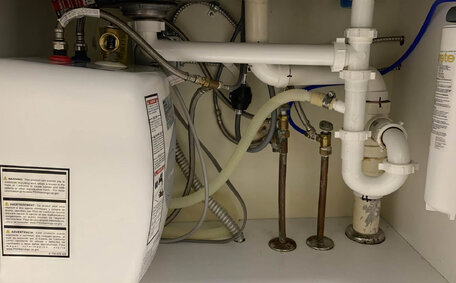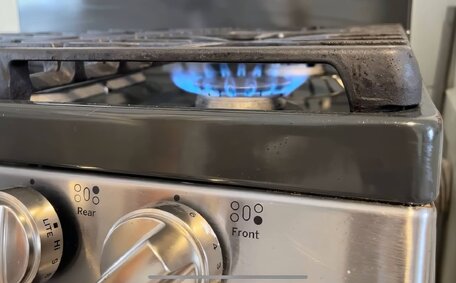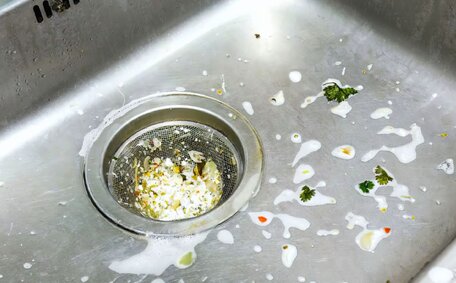Introduction to Insulating Hot Water Systems
Properly installing pipe insulation in your hot water system is a critical yet often overlooked aspect of home efficiency. For homes in Jamisontown with electric or gas water heaters, adding insulation provides multiple money-saving benefits.
Insulating both the storage tank and pipes prevents valuable heat loss, ensuring more of the energy used goes towards heating the water you need.
Insulating hot water pipes maintains the water temperature as it travels to taps and showers, allowing less reheating and quicker availability of hot water when needed. Tank insulation also reduces standby losses when the system isn’t actively heating water. Together, these measures can help you save energy, leading to substantial savings on energy bills over time.
The experts at Jamisontown Plumbing emphasise that along with financial savings, insulation also offers peace mind by improving the longevity and performance of your hot water system. We can advise on suitable materials, position tactics to maximise efficiency and other professional tips to get the most from your hot water system.
Correct insulation thicknesses ensure safety compliance and prevent energy waste through heat loss.
Understanding Heat Loss in Hot Water Tanks and Pipes
Both hot water storage tanks and the connecting pipes lose heat over time, impacting energy use and efficiency. Heat naturally transfers from a warmer object to a cooler surrounding by convection, conduction or radiation. In an uninsulated system, the water cools significantly while awaiting use.
For electric storage tanks, the heating element must reheat cooler water, using more electricity. Gas systems also reheate more often, consuming extra gas. Insulating tanks and pipes essentially creates a thermal barrier to better retain heat energy within the system.
The thicker the insulation, the more effective this barrier is. However, even standard nominated insulation thicknesses make a considerable difference in limiting heat loss from hot water components. Correct insulation also ensures safety by preventing surface temperatures getting too hot to touch.
Properly insulating hot water tanks and pipes is crucial for energy savings and helping your system work as intended. Our experts at Jamisontown Plumbing can advise on the right insulation products and professional installation.
Benefits of Insulating Your Hot Water System
Installing insulation around your hot water system provides multiple advantages beyond energy savings. When you insulate your storage tank and connecting pipes, it substantially reduces heat loss from these components.
With less wasted heat energy, more heat stays inside to keep water hotter for longer. By limiting standby heat loss, an insulated system maintains higher water temperatures without the tank or heating elements working as hard. This directly translates into lower energy bills.
Insulating hot water pipes enables water to retain heat for longer as it travels to taps and showers. Bare pipes lose heat rapidly to their surroundings. One study showed insulating pipes raised output water temperature by 3°F - 4°F (2°C - 2.5°C) without increased energy use.
Higher tank and pipe temperatures prevent wasting water waiting for heat up. Insulated systems also recover faster after heavy usage, getting hot water back sooner.
For homes with electric tanks, less reheating lowers power bills. Gas systems use less gas by reheating less frequently.
Insulating your hot water system extends its working life by reducing strain on components. Jamisontown Plumbing can advise on insulation products and professional installation for maximising the efficiency of your hot water system.
Insulating Your Hot Water Storage Tank
Insulating your hot water storage tank is crucial for maximising energy efficiency. Tanks can lose up to 75% of their heat if uninsulated. For gas systems choose insulation for 212°F (100°C) suits as per AS/NZS 5601.
For electric storage tanks, add insulation rated to suit temperatures up to 170°F (75°C) as per AS/NZS 4692.
Electric Storage Tanks
Wrap insulation sheets or batts around the sides and top of your electric tank, securing with tape.
Leave sensor wiring accessible. Use insulation with an R-value of R2.0 or higher. Fibreglass and polyester insulation work well. For safety, cover with a weatherproof layer.
Gas Storage Tanks
Specialised jackets fit around gas storage tanks to insulate effectively. Ensure insulation doesn’t impede the flue or gas controls. Specialised jackets fit around gas storage tanks to insulate effectively. Ensure insulation doesn’t impede the flue or gas controls.
Seal joints with aluminium tape.
Insulating Pipes
Insulate both hot and cold pipes connected to your water heater for optimal efficiency.
Preformed foam pipe sleeves fit common pipe diameters. Preformed foam pipe sleeves fit common pipe diameters. Alternatively, fibre glass lagging wraps around pipes. Alternatively, fibre glass lagging wraps around pipes.
The team at Jamisontown Plumbing are insulation experts, providing advice and professional installation services. Insulating your hot water system saves money on bills and ensures this vital household system runs efficiently.
Step-by-Step Guide to Pipe Lagging
Insulating, or ‘lagging’ hot water pipes is crucial to prevent heat loss throughout your plumbing system. The right materials and professional approach ensures your pipe lagging is effective, safe and compliant.
Choosing Pipe Lagging Materials
We recommend using either preformed foam sleeves or fibreglass insulation wraps. Foam sleeves slip over standard pipe diameters, while fibreglass allows custom fitting.
- Preformed foam sleeves (polyethylene or vinyl) - Available for different pipe sizes.
- Fibreglass insulation wraps - Flexible to wrap pipes of any dimensions.
Before Installing Pipe Lagging
Properly prepare pipes first for successful insulation:
- Ensure pipes are fully sealed with no leaks or gaps.
- Repair any loose joints or connections.
- Clean pipe surfaces so insulation adheres properly.
- Check insulation R-values suit your climate and pipe types.
Installing Pipe Lagging
Follow these steps to professionally lag pipes:
- Cut insulation to required lengths using a sharp knife.
- Seal seam edges with aluminium foil tape to prevent heat loss.
- Wrap material smoothly and firmly around pipe lengths, without gaps.
- Overlap insulation joins by 50mm and tape seams.
- Use tie-wraps to temporarily hold lagging in place while sealing.
- Ensure valves and elbow joints are fully covered.
The team at Jamisontown Plumbing can provide advice regarding materials, quantities and professional installation. Insulated pipes reduce heat loss, saving money on bills.
Selecting the Right Insulation Materials
When selecting insulation for your hot water system, the optimal material depends on whether you have an electric or gas storage tank, as well as your climate.
For electric tanks, fibreglass batts or polyester insulation sheets work well. Seek materials rated for temperatures up to 75°C to suit typical electric water heater operation. The experts at Jamisontown Plumbing recommend an insulation R-value of at least R2.0 for electric storage tanks.
Specialist preformed jackets are available to insulate gas storage tanks. Alternatively, rigid foam boards like polyisocyanurate can be custom fitted around your tank and secured with aluminium tape. Check insulation yearly as gas systems run hotter, around 100°C.
Protecting Insulation
To protect any insulation and maintain effectiveness, cover with a weatherproof barrier like a hard plastic shell or metal sheathing. This prevents moisture damage over time. Ensure insulation does not block any sensor wiring, gas flues or other external tank components.
The team at Jamisontown Plumbing can recommend the most suitable insulation to maximise hot water system efficiency for your home.
Tips for Improving Hot Water Efficiency
Making some simple adjustments to your hot water system can lead to greater efficiency and lower running costs. The experts at Jamisontown Plumbing recommend trying these handy tips:
Optimise Thermostat Settings
Turn down the thermostat on your electric hot water system to 140°F (60°C) for the best balance of energy savings and safety. This prevents dangerous legionella bacteria growth while reducing reheat cycles.
Insulate Exposed Tanks and Pipes
Wrap or cover any exposed hot water tanks and pipes to minimise heat loss to the surrounding air. This enables the system to operate more efficiently.
Install Water-Saving Showerheads
Replacing regular showerheads with 3 star or higher rated water efficient models reduces hot water usage. Pair with a timer to keep showers short for extra savings.
Maintenance Checks
Regularly check your hot water system insulation for damage which can lower efficiency. Have any issues professionally repaired to keep insulation intact.
Simple upgrades like these optimise your existing system to minimise energy usage and bills. Contact the team at Jamisontown Plumbing for more hot water efficiency tips tailored to your home.
Safety Precautions When Insulating
When installing insulation around hot water systems, safety should be the top priority. Adhering to standards protects your home, health and wellbeing.
Maintain Access
Ensure insulation does not obstruct the water heater’s flue, exhaust vent, control valves, wiring or pipe connections. Access is required for servicing and functionality.
Consider Chemical Hazards
Some insulation materials contain irritating fibres or formaldehyde. Wear PPE when handling and ensure proper ventilation during application. Dispose of hazardous materials responsibly.
Prevent Fire Risks
Position insulation safely away from heat sources in accordance with AS/NZS 5601. Don’t impede any temperature monitoring devices. Inspect insulation yearly for integrity as damage can increase fire risk.
For the latest safety guidance when insulating hot water systems, consult qualified professionals like Jamisontown Plumbing. Protecting homes and health is our priority.






